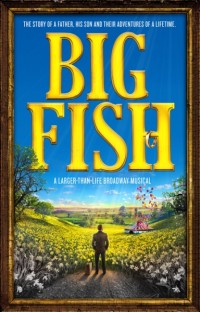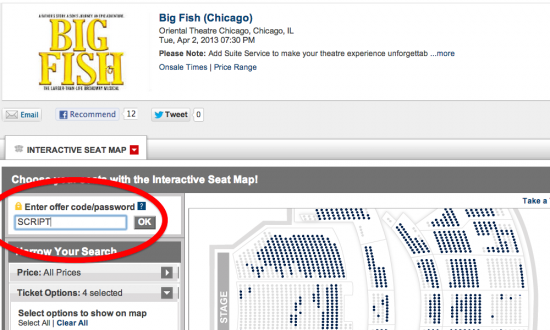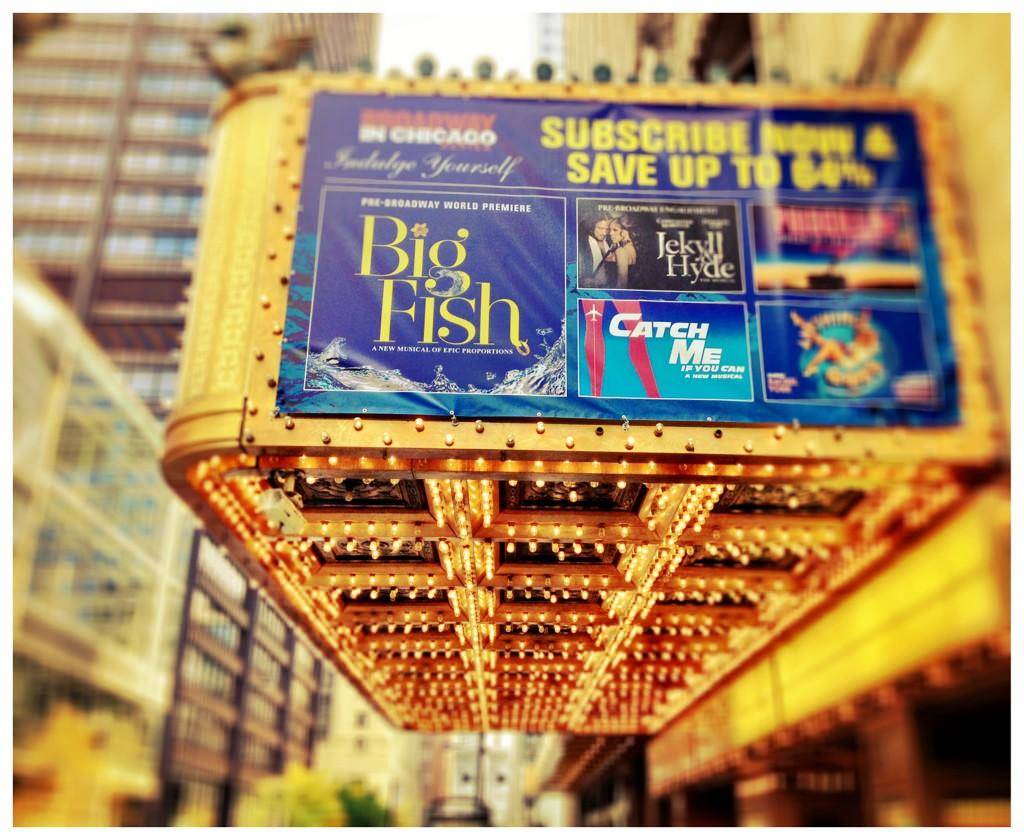In movieland, it’s exciting to see an early cut of a film. You get to be one of the first people with an opinion: what’s amazing, what needs work, and what should probably get cut altogether. You can’t buy a ticket for an early screening — you have to be invited, or recruited by a clipboard-wielding twentysomething in front of Arclight.
[ ](http://www.ticketmaster.com/Big-Fish-Chicago-tickets/artist/1781632)
](http://www.ticketmaster.com/Big-Fish-Chicago-tickets/artist/1781632)
Theater works differently. Right from the start, you can buy a ticket to see a new show. When Big Fish starts previews April 2nd in Chicago, anyone can come. It’s not a test screening — it’s the real show. You bought a ticket, and we’re giving you everything we’ve got.
But because we stage the show again night after night, we can tweak small and big things: jokes and lyrics and songs and scenes. Every night is different, if only because real live people are performing it.
Live theater is great, but it’s nerve-wracking for me. Every night has wild cards, from technical snafus to medical emergencies in the audience.
Like any filmmaker, I’d love to see some friendly and healthy-hearted faces in those early audiences, so last week I asked the producers if I could get a special discount code for blog readers and podcast listeners.
They said yes.
**For the first four performances (April 2-5), you can use the special code SCRIPT to unlock $26 balcony seats.** (They’re usually $70.)
You enter the special code on the first screen with the seat map. Once you enter SCRIPT and click OK, the balcony seats become available at the special price.
[ ](http://www.ticketmaster.com/Big-Fish-Chicago-tickets/artist/1781632)
](http://www.ticketmaster.com/Big-Fish-Chicago-tickets/artist/1781632)
[Click here](http://www.ticketmaster.com/Big-Fish-Chicago-tickets/artist/1781632) for all the available shows. (Or just Google ‘big fish chicago’.)
And when I say I’d like to see you, that’s not just lip service.
If you’re coming to see Big Fish in Chicago — on any night in the run — [tweet me](http://twitter.com/johnaugust) or [email me](mailto:ask@johnaugust.com) your date and seat. If I’m not putting out fires, I’ll come by and say hello.
I’ll also probably ask you about whatever scene I’m wrestling with at the moment. That’s the cool thing about seeing something first: you get to have an impact on what happens next.
So if you live in Chicago or the road-trippable vicinity, grab some friends and be among the first to see the show.
